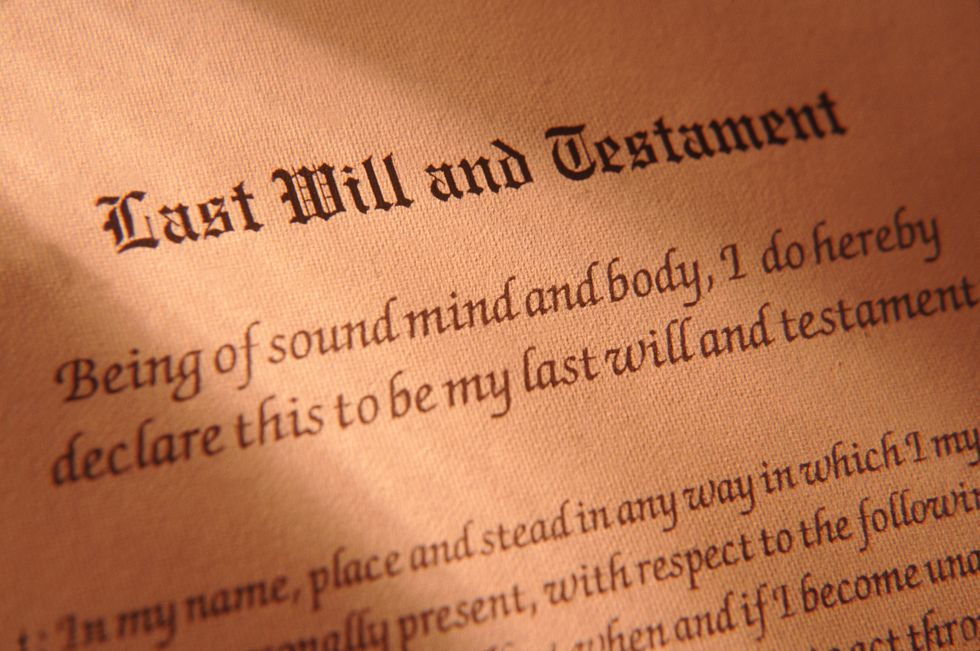‘My wife and I have separate savings accounts – how can we avoid the risk of ridiculous probate costs?’

A couple planning for the future are wondering what their options are
|GETTY

Probate is the legal right to deal with someone's estate when they die, and it is possible - and cheaper - to apply for a grant of Probate oneself
Don't Miss
Most Read
Latest
A couple planning for the future are wondering what their options are if they want to avoid paying a solicitor to apply for probate and access the savings they inherit when their spouse dies.
If savings – Premium Bonds or other forms – held with NS&I exceed £5,000, then the government-backed savings provider may ask for a Grant of Probate.
NS&I told GB News that for claims where the beneficiary is the sole executor/beneficiary, they have raised this limit to more than £30,000.
Do you have a question you'd like financial experts to answer? Get in touch by emailing money@gbnews.uk.

NS&I told GB News that for claims where the beneficiary is the sole executor/beneficiary, they have raised this limit to more than £30,000
|PA
While a financial expert explained it was possible to apply for Probate by oneself, they warned that can be “daunting” and they’d need to complete a legal undertaking in their role as Executor.
Carolyn Matravers, Chartered Financial Planner and Director at Bluebell Financial Management warned: “The cost quoted does sound high to deal with this in isolation, but it’s important to note the details of the entire estate – it is unlikely that the only asset is a Premium Bond – and the size of the estate, the type of assets held will affect the nature of work required and the associated costs.”
Upon seeing the article, a reader contacted the GB News money team.
They wrote: “I was horrified if nothing else, as my wife and I each have separate savings accounts with them.
“We have a joint bank account and identical but separate wills.
“Our problem now is what is the best way to avoid the same problem as the lady is having, in the case of one of us passing as we have separate savings accounts.
“We had thought before reading the article that the surviving partner would just transfer one account into the other.
“We are in no uncertain terms going to pay layers to assist for a ridiculous charge.
“We are now seriously thinking of closing the accounts and moving the money to somewhere with more easily access.
“Do you have suggestions as to the best way forward?”
LATEST DEVELOPMENTS:
GB News put the query to Ms Matravers, who said: “I would suggest the reader calls their bank to establish what their current terms are in the event of an account holder passing away.
“Alternatively, there is usually a bereavement section on their websites; details of their procedure and requirements on the death of an account holder should be freely available.
“NS&I have strict rules on obtaining a Grant of Probate, but all banks have their own internal rules.
“Generally, there will be a de minims limit – where they will pay out the balances under a certain level with sight of the original death certificate and a copy of the Will.
“They will also require some identification, usually for the Executor. It would be sensible to check the rules.
“In terms of the joint bank account - any joint account will automatically fall to the other account holder under survivorship rules, so the reader may be worrying unnecessarily in this instance.”










